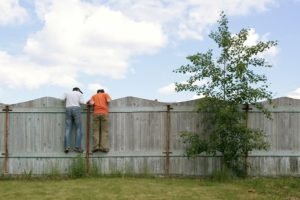
What is a trespasser?
In premises liability law a trespasser is someone who is on a person’s property without the person’s permission and for the trespasser’s own purpose. A trespasser is not necessarily on the property with an intent to commit an illegal act.
Willful or Wanton Harm
Property owners should refrain from engaging in willful or wanton conduct that causes injuries to trespassers, or they may be liable. For instance, a property owner who digs a big hole in the ground and covers it with branches to trap a trespasser may be liable for any injury sustained by a trespasser who fell in the hole.
Known Trespasser
If the trespasser’s presence on the property was known to the property owner and the property owner acquiesces to the trespasser’s presence, then the trespasser is treated as any other guest, and the property owner has a duty to warn the trespasser of known dangers or repair them.
Child Trespasser
A property owner may be liable for injuries to a child trespasser under the attractive nuisance doctrine. Under this doctrine, a property owner can be liable for injuries to a child who is trespassing on the owner’s property if the injury is caused by an artificial dangerous object or condition on the property that is likely to attract children who aren’t capable of understanding the hazards associated with the object or condition. Examples of attractive nuisances include:
- Swimming pools
- Playgrounds
- Trampolines
- Manmade ponds
- Abandoned cars
- Abandoned farm equipment
- Construction materials or equipment
To establish liability based on an attractive nuisance, it must be shown that the property owner knew or should have known of the likelihood that children would trespass on the property.
Contact an Experienced Attorney
If you’ve been injured on someone else’s property, you should have a personal injury attorney evaluate your case. At Bonina & Bonina, P.C., we have over 50 years of experience helping injured New Yorkers. Contact us online or call us at 1-888-MEDLAW1 to schedule your free consultation. Home and hospital visits are available. Se habla español
